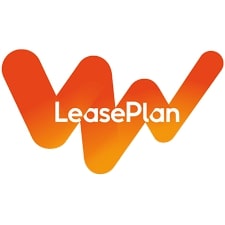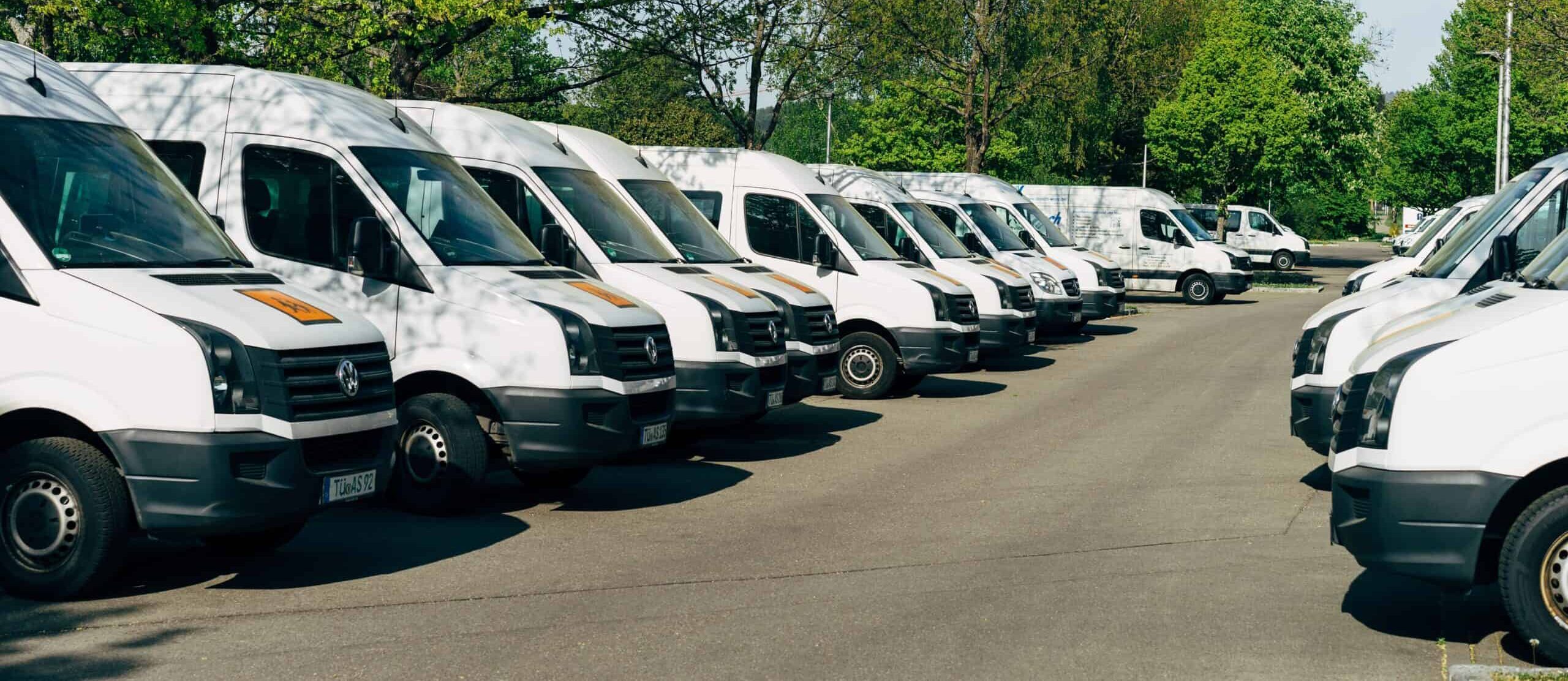Let’s say you’re starting a business that needs a fleet of vehicles. If you don’t have the capital to purchase a fleet of vehicles, you might experience the following paradox: you need capital to purchase the fleet, but you need the fleet to get business and raise capital.
This puzzle is why many startups turn to fleet leasing companies. Fleet leasing gives new businesses the ability to get their enterprises off the ground without the hassles that come with buying, maintaining, and insuring a fleet of trucks. But which fleet or semi truck leasing company is right for you?
Quicklook: Best Fleet Leasing Companies
- Best for Becoming an Owner-Operator: Roehl
- Best for Mega Fleets: LeasePlan
- Best for Large Fleets: Holman
- Best for Customer Service: Doering
- Best for Small Fleets: Enterprise
- Best for International Business: Element
6 Best Fleet Leasing Companies Options
Not every business is created equal. Some will need the services offered by one fleet leasing organization more than those offered by another.

Roehl
If you’re an owner-operator (or want to become one), you’ll love Roehl’s vehicle selection and paid CDL training opportunities. The company often features in Transport Topic’s Top 100 and CCJ’s Top 250 and is well established as a reliable, safe bet for those interested in getting the experience needed to become an owner-operator.
Best For: Becoming an owner-operator
Location: 1916 E. 29th Street, PO Box 750, Marshfield, WI 54449
Fleet Minimum: No
Fleet Options:
- Dry van
- Flatbed and specialized
- Curtainside
- Refrigerated van
- Dedicated
Special Features:
- 24/7 Customer/maintenance support
- Nationwide coverage
- Military-friendly employer
Benefits:
- CDL training program requires little or no money upfront
- No experience required
- Will pay extra for situations like short or secondary loads
- Many driver benefits such as health, dental, life insurance, 401(k), FSA, etc.
- Pets allowed
Disadvantages:
- Some reviews point out a lack of experienced management
- Reviews complain of constant supervision via cameras
- Drivers may be required to sign longer-term contracts than they’d like

LeasePlan
This fleet leasing company based in the Netherlands is one of the largest globally and has offices spread throughout the continents.
With 1.8 million vehicles across 29 countries, LeasePlan can serve any size company. Founded in 1963 as LeasePlan USA, it continues to put a focus on its car-as-a-service style business. In June 2022, Leaseplan merged with Wheels Donlen.
Best For: Mega Fleets
Location: Corporation N.V., Gustav Mahlerlaan 360, 1082 ME Amsterdam, The Netherlands
Fleet Minimum: No
Fleet Options:
- Cars
- Light duty
- Electric vehicles
- Trucks
- Heavy-duty equipment
- Material handling equipment
Special Features:
- Fuel management
- Remarketing
- OneConnect
- Comprehensive safety program
Benefits:
- Secure fuel card for drivers and monthly fuel usage reports
- Fleet resales are taken off your hands
- Ability to monitor driver behavior, maintenance trends, and expenses
- Easy to identify high-risk drivers before an incident occurs
Disadvantages:
- You may not be able to extend the contract
- Many complaints about customer service

Holman
Formerly branded as ARI, Holman is approaching a century of operation. Its team of over 6,000 grew from a small, family-owned Ford dealership in New Jersey. Holman focuses on community and environmental responsibility through charitable donations and an increasing fleet of electric vehicles.
Best For: Large Fleets
Location: 4001 Leadenhall Rd., Mt. Laurel Township, NJ, 08054
Fleet Minimum: No
Fleet Options:
- Cargo vans
- Mid-size trucks
- Full-size trucks
- Service bodies
- Tractor-trailers
- Electric vehicles
Special Features:
- Personal maintenance squad
- Supply chain management
- Garage management
- Accident management
Benefits:
- Dedicated team to cover preventive maintenance and inspection planning
- One team manages the entire supply chain process
- Easily track inventory
- Measure mechanic productivity
- Fast accident notifications sent to necessary parties
- Quick assistance dispatched to drivers
- One of the largest fleets of electric vehicles
Disadvantages:
- Customer service wait times
- Some report long waits for towing service

Doering Fleet Management
If you take reviews as a glimmer of truth, the consistent praise for Doering’s customer service is a big plus. The company accomplishes this by working to offer useful services with clear choices and providing solid upfront communication for every client.
This team prides itself on tailoring the fleet leasing experience to the individual needs of the companies that use Doering’s services.
Best For: Customer Service
Location: 15300 W. Capitol Dr., Brookfield, WI, 53005
Fleet Minimum: 5
Fleet Options:
- Luxury cars
- Branded cargo vans and trucks
- Electric vehicles
- Box trucks
- Cargo vans
Special Features:
- Fleet consulting
- Flexible leasing
- Fuel management
- Maintenance management
Benefits:
- Assistance from experts when building the right fleet for your business
- Structured leases to suit any vehicle type
- Nationwide fueling
- Oil change reminders
- Security
- Reporting
- Consolidated billing
- Program to authorize, track, and report maintenance expenses
Disadvantages:
- 500 vehicle fleet limit

Enterprise Fleet Management
While Enterprise is probably familiar to most as a rental car company, the company also offers fleet services for clients that need them. Enterprise prides itself on embracing new technologies to benefit its customers, such as telematics, apps for maintenance, and proactive fleet management.
Every customer gets a local client strategy manager to simplify communication and provide consistency.
Best For: Small Fleets
Location: 1550 Route 23 North Ste. 101, Wayne, NJ, 07470
Fleet Minimum: 20
Fleet Options:
- Mid-sized trucks
- Cars
- Cargo vans
- Box trucks
Special Features:
- Advanced GPS tracking
- Fleet management reporting platform
- Mobile app
- Vehicle accident management
Benefits:
- Receive real-time data to optimize fleet performance and savings
- Web-based technology makes fleet reporting clear
- Real-time fleet management at your fingertips
- Handle vehicle claims and repairs quickly with 24/7 service
Disadvantages:
- Limited vehicle selection
- Not in all 50 states

Element Fleet Management
The perfect choice for companies that need to operate globally. Element Fleet Management has over one million vehicles and 2,500 employees around the world and prides itself on its cultural diversity, sustainability, and experience.
Best For: International Companies
Location: 161 Bay Street Ste. 3600, Toronto, ON, M5J 2S1
Fleet Minimum: No
Fleet Options:
- Cars
- Vans
- SUVs
- Mid-size trucks
- Large trucks
- Semi-trucks
- Cargo vans
Special Features:
- Fleet toll management
- Violations management
- Fleet licensing and registration services
- Fleet management outsourcing solutions
Benefits:
- Detailed toll activity reports
- Mitigate time spent opening toll accounts
- Automate the processing of violations to avoid unpaid fees
- Keep all of your vehicles compliant with local regulations
- Tailored program to provide the level of support for your fleet’s daily needs
Disadvantages:
- Long hold times for customer service
- Extra fees can make the service expensive
What Is Fleet Leasing?
Think of fleet leasing as renting a car on a much larger scale. A company that needs to operate a fleet of vehicles — perhaps for package deliveries or transporting passengers — might require a third party to supply those vehicles. The company might rely on the fleet leasing provider indefinitely or for a specific period.
How Does Fleet Leasing Work?
Typically, a fleet leasing contract will last for a year, possibly more. This agreement will entitle a business to use an agreed-upon number of vehicles for a set purpose, such as cargo vans for moving furniture or luxury cars for ferrying dignitaries.
The leasing company handles the liabilities and maintenance so the businesses using the assets can focus profits on other areas.
Businesses can enter leases that are open-end or closed-end. Open-end leases offer greater flexibility because the agreements are for shorter time periods. Perhaps a business signs an open-end lease that lasts for one year and transitions to a month-to-month agreement thereafter.
The open-end agreement may or may not include repairs or maintenance and might include a terminal rental adjustment clause (TRAC). This clause would require the business leasing vehicles to be responsible for the defined resale values. The lessee will have to pay the difference if the actual resale value is lower than the defined value.
Closed-end leases are for businesses that need longer-term agreements — sometimes three years or more. These agreements are more expensive, but they generally have the benefit of covering maintenance and repairs. They also don’t have TRACs, so if the vehicles aren’t worth book value by the end of the lease, there is no penalty.
What To Consider When Using a Fleet Leasing Company
There are a few factors that you’ll need to consider before picking up the phone and calling the first fleet leasing company you find in the yellow pages, or more likely on Google. You’ll need to know exactly what you need in a fleet, which means you’ll have to consider several things:
Size
It opens up your options considerably if you don’t need a mega fleet. Let’s say you only need a small to mid-sized fleet ranging anywhere from 15 to 999 vehicles, you can then focus on other factors, such as customer service and types of vehicles.
Large fleets contain somewhere around 1,000 to 2,499 vehicles, while mega fleets have 2,500 units or more. Depending on your business’s needs, you may need a huge fleet of delivery trucks working around the world or just a few vans operating in your hometown.
Vehicle
What kind of vehicle does your business need to lease? This selection may restrict you if you need refrigerated trucks, for instance.
Remember also that you will have to pay for your own fuel, so oversized vehicles may eat into your profits. Dependability and reliability are also important factors. If your customers don’t like waiting, ensure the vehicles you lease can rack up miles without issue.
When you need to transport large volumes of cargo, you’ll probably require a fleet of tractor-trailers or semi-trucks. Your agreement will probably be much more expensive, but these trucks are the best way to transport large amounts of goods.
You can also rent cargo vans, sprinters, and cars. Many types of businesses — such as plumbers, taxis, and local delivery services — need simpler, more basic transportation that simply wouldn’t be feasible with tractor-trailers.
Insurance
Remember that the fleet vehicles you lease need to have commercial vehicle insurance. This insurance may or may not be provided by the leasing company, which means you must do your homework on whether the fleet leasing company you choose has such insurance — you may need to get your own fleet insurance.
Thankfully, most of the time, insurance companies offer discounts for fleets, and usually, the more vehicles you have, the larger the discount.
Drivers
You’ll have to decide whether you’ll hire your own drivers or depend on third-party sources. Many fleet leasing companies partner with CDL schools that provide a ready source of new drivers. There are also programs you can take advantage of that will find and hire drivers (usually for a fee), or you could train and hire drivers yourself.
Fleet Leasing vs Fleet Financing
The real question is, “do you want to own your vehicles or release them back to the leasing company when you’re done with them?”
As time goes by, you may find that you dislike using another company’s trucks because you have no ownership of them. While this has its advantages — such as the fact that repairs and maintenance aren’t your problems — you may want to build equity to be able to get better loan terms from banks.
While you may have lower monthly payments leasing instead of financing, if you plan on using a vehicle for more than five years, you’ll end up paying less money financing. Once you own your vehicle, you can also make specific customizations you might not be able to otherwise, such as adding new wraps and special equipment add-ons.
Leasing does offer greater flexibility, however, since leasing companies will usually have provisions for upgrading to newer vehicles. If you don’t like having the headaches of worrying about the age of your fleet and keeping up with the latest technology, leasing may be for you.
Fleet Leasing Can Get Your Business into Motion
Startups have an uphill battle when it comes to capital. Putting dollars where they can do the most good is essential, and fleet leasing companies provide a way to get much-needed equipment without huge investments.
These companies offer great flexibility, and using their services can be an excellent way to give businesses the breathing room to focus on the parts of their enterprises that need greater attention. Is a fleet leasing company right for you?
FAQ
PepsiCo, Inc. with more than 11,000 tractors, 3,500 trucks, 17,000 pickup trucks/cargo vans, and 18,000 trailers.
As long as a company has two vehicles, that’s technically a fleet. With that being said, insurance companies generally only offer fleet insurance for fleets with more than five vehicles.
The term “fleet size” refers to the number of trucks owned or controlled by a company.


